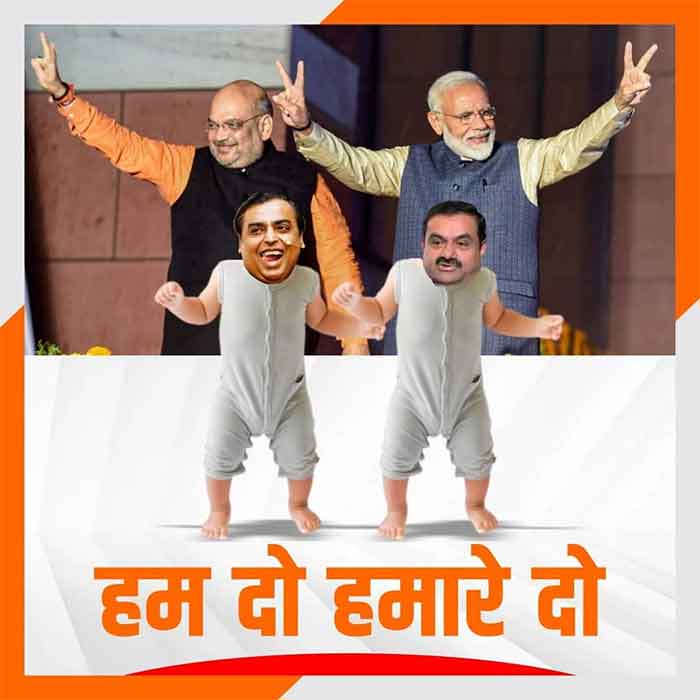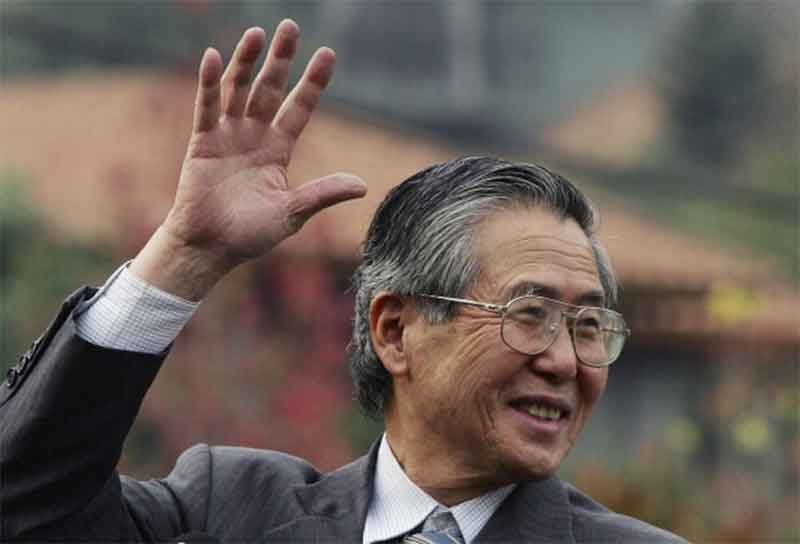
As on the expected lines, tech-driven neoliberalism that stands for a market-driven consciousness (of the state and the self) wrecked widespread havoc on India’s welfare state and social security, the oligarchs in the world’s most populous nation needed a new force to guard their vast fortunes because mainstream political parties lacked the fire in their belly to act as a counter force in the face of a mass revolt.
The elites feared the liberalization, grotesquely rolled out by the late prime minister Manmohan Singh at their behest in the 1990s, would open up a sea of opportunities before India’s poor who were hitherto held captive by the caste system which mainstream parties, including communists, failed to challenge in independent India like their UK colonial masters who fathered two communal outfits, including the Rashtriya Swayamsevak Sangh (RSS), during their occupation of the resourceful subcontinet.
Once the state policies were remodeled to suit the market, the traditional Indian society, pampered by the Keynesianism of the mainstream parties like the Congress and its tall leaders like Gandhi and Nehru, was asked to follow the diktats of ruthless competition of neoliberalism which is dead against the neutrality of the state and the universality of individuals.
However, empowered by the trickledown effects of Singh’s new economic policy, a new social class emerged with the cultural capital to swim against the tide, thereby depriving the elites of the surplus labor promised eternally under the hierarchical four-tier caste system where the vocation or, for that matter, destiny itself is decided before birth of a person.
The elites desperately needed the cheap surplus labor to profit by as the nation with a mammoth population was set to become the world’s third-largest economy, surpassing Japan and Germany, by 2030.
To stave off potential knee-jerk reactions and rein in the mass, the elites needed a powerful and able arbiter or a troubleshooter who is also capable of producing a ‘desirable panic’ to keep their rivals in check and new entrants at bay.
Their search for a powerful savior ended with the RSS, the clandestine paramilitary outfit that was in political hibernation due to four official bans.
The latest one was after the demolition of the Babri mosque in 1992 after Singh rolled out a red carpet for neoliberalism that thrives on chaos and financialization of human activities.
They wanted someone with the ability to disseminate the fear factor and conduct nefarious psychological manipulations that can be made monstrous and treacherous once the unbridled political power of the government and corporate financial might are meticulously mixed and legitimized subsequently.
They wanted someone who could make it appear that the flourishing neoliberalism in the country was working for the national good by hijacking the political narrative through compassionate religious means, violence, othering, and falsification of history under the guise of national defense and an imagined right.
For the 1.43 billion inhabitants of India, the fourth-largest arms spender in the world, the theocratic militarism and the new order of cruelty by a vengeful state is too big a spectacle to give a skip now.
India is currently under the spell of a counter-revolutionary set-up that western scholars like Étienne Balibar describe as the “preventive counterrevolution” to nip social and economic revolutionary trends in the bud and create docile subjects who only act out of pure self-interest. They are brainwashed to believe that selfishness makes a nation rich!
Those who begged to be different were either killed in broad daylight or put behind bars on flimsy grounds.
The courageous among them courted death, like in the case of Mumbai special court Judge Brijgopal Harkishan Loya and octogenarians like Father Stan Swamy’s plea for a dignified death at the fag end of his earthly life became a cry in the wilderness.
More than a hundred Indians died following the note ban in 2016 and hundreds of thousands of migrant Indians faced the ordeal of a horrendous lockdown during the pandemic.
No end in sight to the 21-month old sectarian strife in Manipur and violence has become the order of the day across India.
Mukesh Ambani conducts the most expensive nuptial affair (US$600 million) in history while the federal government provides free food grains to about 813 million poor people (total US population 334 million) under the Pradhan Mantri Garib Kalyan Anna Yojana, according to the state-owned Pres Information Bureau.
But few questions are asked, and few eyebrows are raised.
Leading public intellectuals like Amitav Ghosh, Naseeruddin Shah, Romila Thapar, Jayati Ghosh, Harsh Mander and Christophe Jaffrelot seek the release of Umar Khalid and those arrested for protesting the Citizenship (Amendment) Act .
But their plea falls on the deaf ears of society and the state.
The message is loud and clear and the results are there to see, as deep social discontent is put under the backburner once and for all.
A contemplative Indian mindset has been remodeled into a mobile human capital waiting for its highest bidder at the mundane altar of neoliberalism that is now waiting on its wings to fly with the fourth industrial revolution.
Once a market-compliant Indian state was established, all the inherent evils of speculation-fueled neoliberalism, including income disparity and dismantling of the welfare state, were blamed on its executive agency.
In this case, the Bharatiya Janata Party (BJP), the political wing of the RSS, that suffered a major jolt in the 2024 national polls over India’s affirmation action policy.
Indians, their identity, sexuality, parenthood, and intimacy are now dancing to the tunes of grandiose promises of an unfree free market, championed by global free entrepreneurs who pretend to end poverty.
This year’s Maha Kumbha, the world’s largest religious gathering coming after 144 years, was organized with the help of transnational firm Ernst and Young (EY) in the BJP-ruled northern Uttar Pradesh. Hundreds of thousands of hapless pilgrims got a taste of the VIP culture at Kumbha when they were caught napping in a pre-dawn stampede on Jan. 29.
Subscribe to Our Newsletter
Get the latest CounterCurrents updates delivered straight to your inbox.
While there were popular uprisings against the ruling elites in neighboring Sri Lanka and Bangladesh and to some extent in Pakistan, the oligopolistic neoliberal subjectivity of the “preventive counterrevolution” has saved the day for India’s rich.
Neoliberalism is more than an economic endeavor in India.
Ratna Kumar is a political commentator
++++++++++++++++++++++++++++++++
according to the state-owned Pres Information Bureau.















































